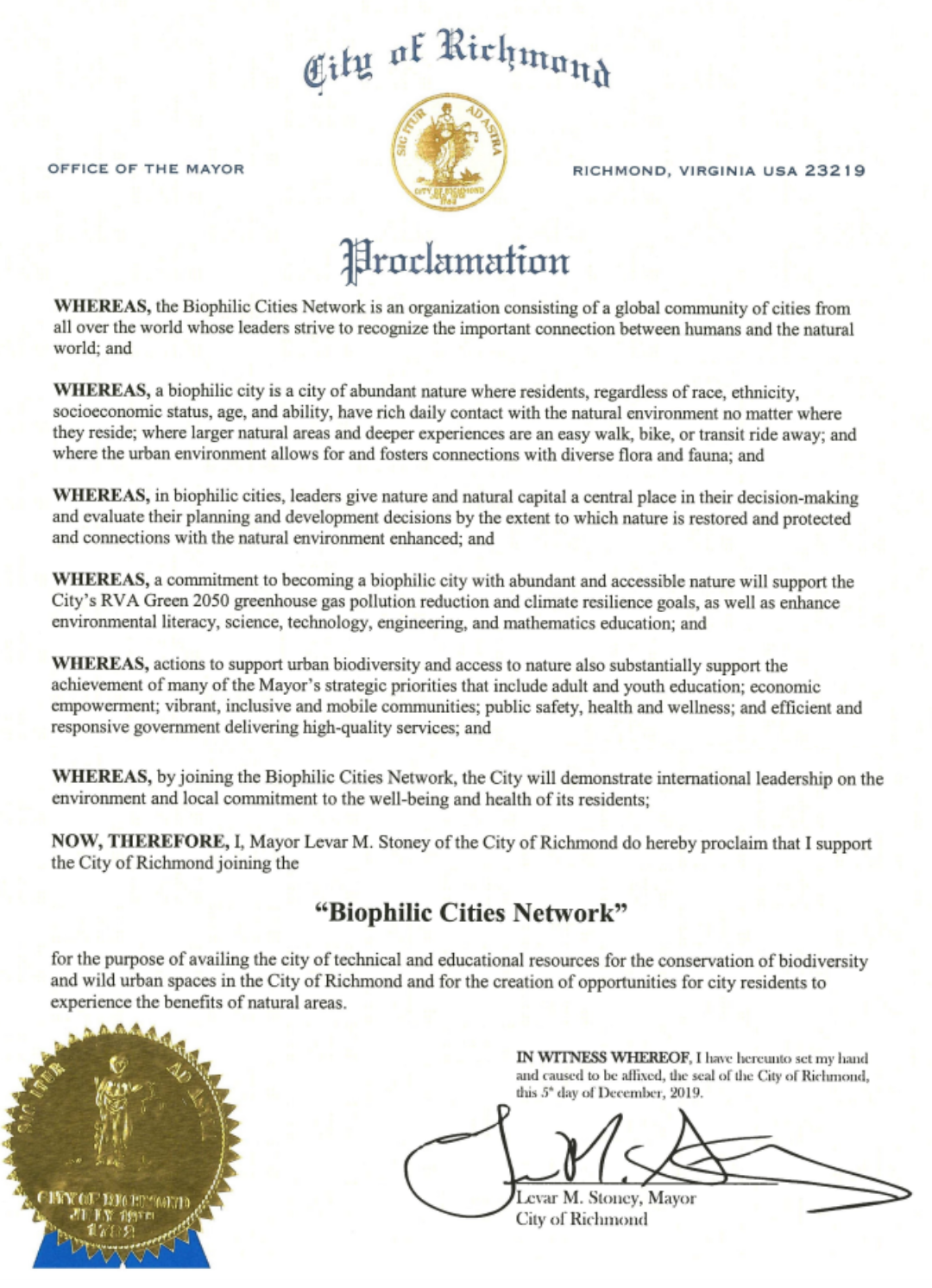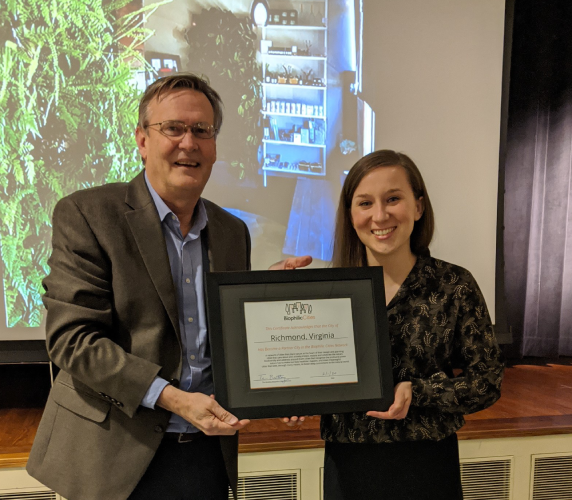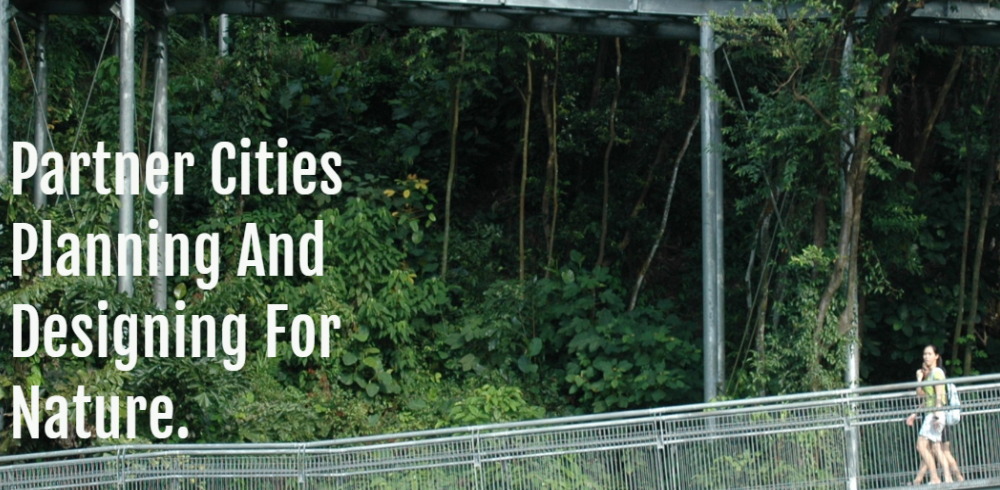Since 2017, the James River Association and a group of local advocates have been working with the City of Richmond’s Office of Sustainability and Biophilic Cities to add Richmond to the Biophilic Cities Network, a global community of cities whose leaders recognize the important connection between humans and the natural world. We are thrilled to share that on December 5, 2019, Mayor Levar Stoney issued a proclamation in support of Richmond joining the Biophilic Cities Network.
To celebrate Richmond joining the network, Tim Beatley of Biophilic Cities presented Maggie Anderson of the Mayor’s Office with a certificate at the kickoff to the 2020 RVA Environmental Film Festival on February 7, 2020. Maggie spoke about the the Mayor’s recently assembled Green Team, which is tasked with identifying city-owned parcels that could become parks with the intention of improving park access for Richmonders who have poor access.


After Maggie spoke, three films from Biophilic Cities were screened by a packed house, including ‘Singapore: Biophilic City.’ A conversation moderated by Tim Beatley and featuring Nathan Burrell of the Virginia Department of Conservation and Recreation, Michael Carter, Jr. of the Virginia State University Small Farm Outreach Program, local architect Patrick Farley, Jeremy Hoffman of the Science Museum of Virginia, and Brianne Mullen of the City of Richmond Office of Sustainability and RVA Green 2050 followed. Each panelist shared thoughts on how Richmond is already biophilic and important work to be done to improve the quality of life for all Richmonders.
So… What is a biophilic city?
Simply put, a biophilic city is a city with abundant and accessible nature in which humans and wildlife thrive. According to Edward O. Wison, author of Biophilia, biophilia is “the innately emotional affiliation of human beings to other living organisms.” Wilson developed the Biophilia Hypothesis, the instinctive bond between human beings and other living systems developed over thousands of years of evolution human-environment interaction. Biophilic cities integrate nature into the built environment for the benefit of humans and wildlife, restore and protect nature, and ultimately create opportunities for humans to enjoy and connect with nature. Biophilic cities.

